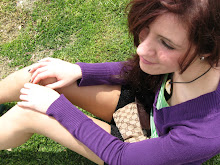Endless Love? Stony Brook's Arthur Aron Says 'Yes'
By Susan Risoli
Everybody loves somebody sometime. Ask social psychologist and Stony Brook professor of psychology Arthur Aron, who’s spent years looking at how our brains behave when romance comes calling. But even he was surprised by what he discovered recently about finding love — and keeping it.
Q. In your latest study, with Stony Brook doctoral student Bianca Acevedo, you scanned the brains of long-term married couples. Why were you so surprised by what you found?
A. It contradicts what most scientists thought about romantic love lasting over time. That possibility was in doubt. Even when couples self-reported still being “in love” with their partners, we chalked it up to data error, or to people kidding themselves, or kidding us.
But we scanned the brains of people who had been married an average of 21 years. And we saw that feelings of long-term romantic love activate the same dopamine-rich areas of the brain as early-stage, intense “falling in love.” The only difference was that long-term romantic love does not activate brain regions related to lots of high anxiety and obsession, which is what happens in early-stage love. So the brains are the same, without the anxiety and obsession about the love being reciprocated.
But the intensity is still there. In these long-term couples there are huge amounts of ongoing emotional and physical affection. Some of these people tell us they annoy their friends because they’re so “lovey-dovey.”
Q. Are you saying that true love does exist?
A. If what you mean by “true love” is something intense that lasts, yes. It does look like some people live happily ever after. Our data suggest that it is possible, and it is real.
Q. How can other couples achieve the bliss experienced by the ones you studied?
A. We don’t know yet. That’s the next step for our research: to identify the conditions under which this can happen.
Q. Couldn’t we just give people the chemicals associated with long-term romantic love, to stimulate the areas of the brain associated with lasting partnership?
A. Sure, cocaine would do it. But I wouldn’t recommend it. It’s much better to get the reward from something really positive—that is, being with another person.
Q. Anything else we should know about love?
A. Recently we exactly replicated our previous study of newly-in-love people, only we conducted the new study in China. We kind of glorify passionate love here in America, but most cultures don’t. There’s been considerable question about whether early-stage love is a cultural phenomenon. But even in a drastically different culture, the same areas of the brain lit up under the same conditions, providing strong evidence that passionate love is the same thing in other cultures. We were surprised by that too!
Q. We have to ask: Are you in a long-lasting relationship?
A. My wife and frequent collaborator is Elaine Aron, an eminent researcher and best-selling author. We've been together since we met in Berkeley in 1968.
(http://www.stonybrook.edu/sb/aronfeature)
Science is so cool. Get into it.

No comments:
Post a Comment